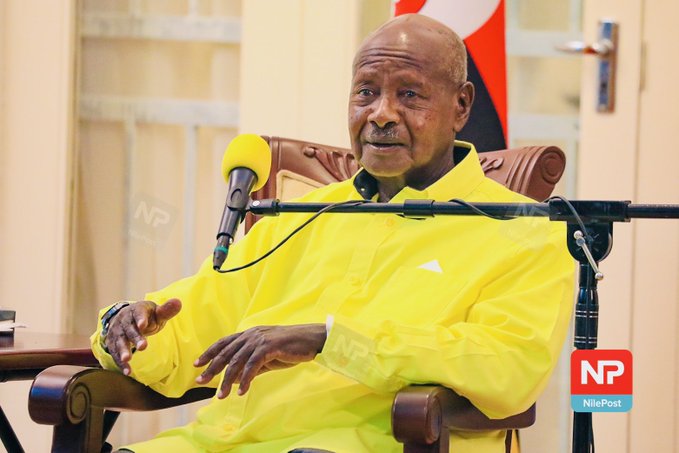President Museveni has dismissed as false and misleading reports suggesting that he intends to wage war against Kenya over Uganda’s lack of direct access to the Indian Ocean.
Speaking to journalists on Thursday night at State Lodge Kityerera in Mayuge District, the President clarified that his earlier remarks—made during an address in Mbale—had been taken out of context.
He said his comments were about long-term strategic security considerations for landlocked countries, not hostility toward neighbouring states.
Museveni revealed that Kenya’s Prime Cabinet Secretary Musalia Mudavadi had travelled to Uganda this week to seek clarification on the matter.
He said he assured the Kenyan government that Uganda remains committed to strengthening regional cooperation, not creating friction.
“What I said in Mbale is exactly what I have said here,” Museveni noted. “How can I be hostile to Kenya when I am promoting economic integration? One of the NRM’s pillars—the seventh ttafali—is political integration. The sixth pillar is economic integration. When Ugandans produce goods and Kenyans buy them, and vice versa, we all prosper.”
The President explained that his reference to the Indian Ocean was part of a broader discussion on regional defence planning.
He said that even as the East African Community (EAC) grows, member states still operate separate defence systems, which limits collective strategic capabilities.
“Some of the big powers of the world plan to dominate in land forces, air force, navy, and even in space,” Museveni said.
“If they gain overwhelming strength, where does that leave us? How can Uganda build a navy without access to the ocean? Countries on the shoreline may not have the financial capacity to build a navy either. That is why I talked about political federation—to maximize our potential together.”
For a week, social media has been awash with content claiming that Uganda intended to go to war with Kenya over access to the Indian Ocean, fuelling diplomatic tensions and widespread public speculation.
The President also addressed concerns about wetland encroachment in Busoga, assuring residents that government has no plans for violent evictions.
He acknowledged that many communities depend on wetlands for agriculture and other traditional uses.
“The question is not whether to use wetlands but how to use them,” Museveni said.
He noted that traditional activities—such as harvesting papyrus for roofing, weaving mats, mulching gardens, and fishing—were sustainable, unlike current practices such as rice growing that drain wetlands.
“When you grow rice in wetlands, you dry the swamp, yet we need that water for irrigation on dry land,” he said. Museveni argued that rice farming in natural wetlands yields far less income compared to ventures like fish farming, which can generate up to Shs140 million per acre annually, according to his assessment.
Museveni also commented on the scandal involving the illegal acquisition of land titles in the Busoga South Forest Reserve, saying government would take firm action against the culprits.
“I have been briefed on how people fraudulently acquired land titles in the forest,” he said. “We shall get them. Thieves are never clever—they forget that the land is here. We shall catch them.”
The President was speaking at the close of his week-long tour of the Busoga sub-region, during which he addressed economic development, environmental protection, and governance issues.


